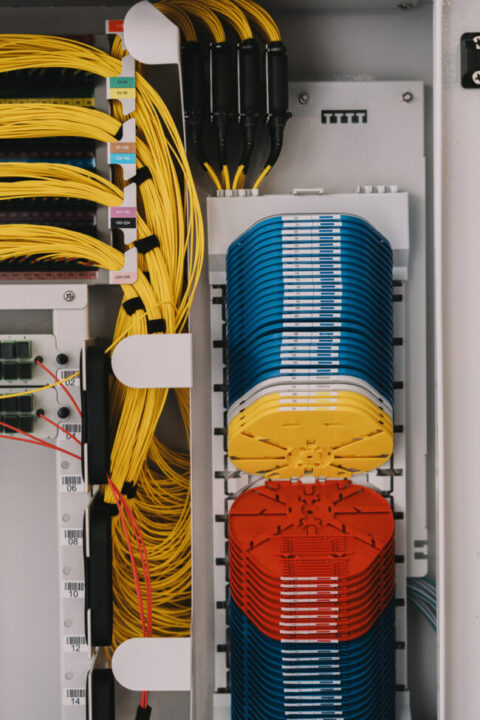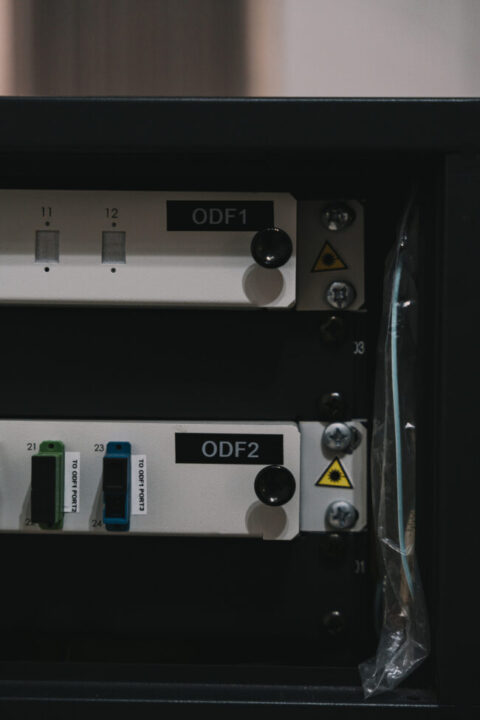Certified Fiber Optic Specialist Design
| Certification | Instructor: P. Gkoumas | Duration 3 Days |
BOOK NOW + |
|---|---|---|---|
Description
Our Certified Fiber Optic Specialist Design program offers comprehensive training in fiber optic network design, planning, and documentation. This certification is essential for IT personnel, facilities managers, network designers, estimators, and technicians involved in the design or installation of fiber optic networks. The program covers both outside plant and premises networks, ensuring participants gain a thorough understanding of all aspects of fiber optic network design.
This course is particularly valuable for network owners and planners who may not be familiar with the complexities of fiber optic network design. By participating in this program, they will acquire the knowledge and skills needed to simplify their tasks and improve their projects. The curriculum is designed to provide practical, hands-on experience alongside theoretical knowledge, making it highly applicable to real-world scenarios.
Participants will learn how to create detailed network designs, develop accurate project estimates, and plan installations with precision. The course includes modules on network topology, cable management, splicing and termination techniques, and testing procedures. Additionally, it addresses regulatory and safety standards to ensure compliance during the design and installation processes.
Our program emphasizes the importance of meticulous documentation and effective communication within project teams. Through practical exercises and case studies, participants will learn to navigate the challenges of fiber optic network projects and implement best practices to achieve optimal results.
Upon completion of the Certified Fiber Optic Specialist Design program, participants will be equipped with the expertise to design and implement high-quality fiber optic networks. This certification will enhance their professional credibility and open up new opportunities in the field of fiber optics.
Join our program to advance your career and contribute to the development of robust and reliable fiber optic networks.
Contents - Coverage DOWNLOAD PDF +
Our Applications Specialist Certifications are designed for users, designers, contractors, and installers involved in specific applications of fiber optics. These certifications focus on specialized areas such as fiber to the home (FTTH), optical LANs (OLANs), and fiber optic network design. To enroll in these advanced programs, participants must hold a CFOT certification or possess basic knowledge of fiber optics. This foundational knowledge can be acquired through online courses or introductory presentations provided by our school before the commencement of the main course.
These application-based certifications ensure that professionals are equipped with the necessary skills and expertise to excel in their respective fields. The curriculum includes in-depth training on the latest technologies, industry standards, and best practices. Participants will engage in hands-on exercises and real-world scenarios to apply their knowledge effectively. By completing these certifications, professionals will enhance their credibility and advance their careers in the rapidly evolving fiber optics industry.
This program is designed for anyone who is to be employed in the design, configuration, installation, testing, troubleshooting, or management of Fiber Optic communication systems and networks. This includes, but is not limited to, Design Engineers, Network Owners, Facilities Managers, Electrical and Mechanical Technicians, Contractors, and Architects involved in the network design of fiber optics. Whether you are a seasoned professional or new to the field, this course will equip you with the skills and knowledge needed to excel in the fiber optics industry.
The FOA CFOT certification is a mandatory prerequisite for participating in the program. Alternatively, with the school’s approval, equivalent basic knowledge of fiber optics and communication networks acquired through experience or other training may be accepted. This foundational knowledge should encompass the fundamental principles of fiber optics, installation techniques, and communication network management. Such experience can be derived from professional work in related fields, attendance at seminars, or other educational programs.
Once the program is completed, trainees should be able to:
- Understand the concept and content of “optical fiber” as a natural medium of transmission.
- Know how optical fibers are used in communications.
- Understand how signals are transmitted in an optical fiber link.
- Identify the components used in optical fiber installations.
- Calculate the available power budget and loss budget of an optical link.
- Understand the methods for testing an optical fiber installation or network.
- Understand what is involved in the design of an optical fiber network.
- Progress to designing an optical fiber network.
- Introduction to Fiber Optic Design
- Fiber Optics Terminology and Jargon
- Fiber Optics Features
- Fiber Optics Termination
- Cabling – Specifications
- Power Budget – Loss Budget
- Selection of Network Components
- Testing the Network
- Fiber Optics Architectures – WDM technique
- Fiber Optics Design – Planning/Documentation/Paperwork
- Fiber Optics Architectures – FTTx architectures – Case Studies
- Design Case Studies
- Fiber To The Home
- Metropolitan Telecom Network
- Long Distance Telecom Network
- Corporate LAN Backbone
- CCTV Surveillance Link
The lectures and the notes provided to you are in Greek. However, the final exam (online – fifty (50) multiple-choice questions with a duration of 60 minutes) is in English. A score of 70% is required for the exam to be considered successful. The final exam takes place during the last training day.
In case of failure, you are entitled to one free retake.










